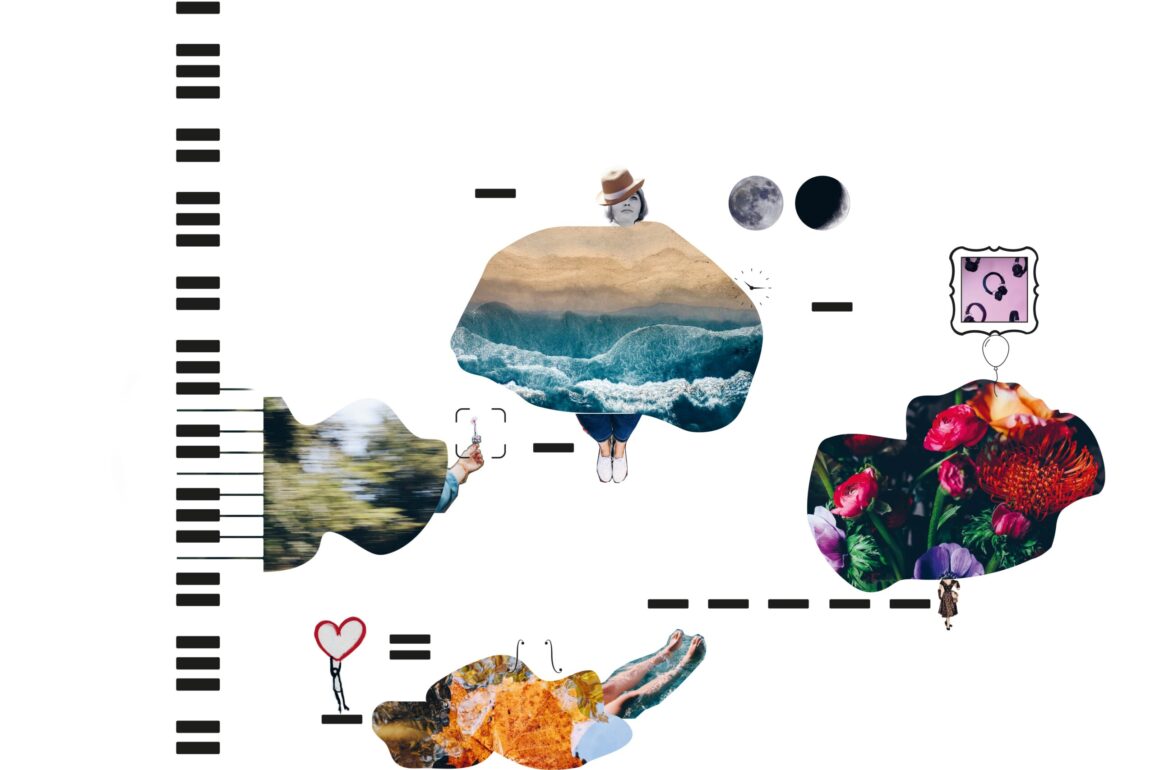Three women discuss the different philanthropic work they engage in, what moves them and what motivates them.
‘I couldn’t imagine life without music,’ says Ursula Jones. She explains that she was surrounded by musicians even as a child. As a patron, she supports young, talented musicians in England, and, with the help of the Maria und Walter Strebi-Erni Stiftung, in Switzerland, too. Ursula Jones’ mother, Maria Strebi-Erni, founded the charity in 1982, together with her daughter Ursula and her husband Philip Jones, to commemorate her husband. Walter Strebi loved music, and musicians were always coming and going from the Strebi residence. Ursula Jones also played music with her father, with him on the violin and her on the piano. Her mother wasn’t always over the moon about this, as Ursula Jones explains now. Her mother would rather have had a lie-in on Sunday morning than be rudely awoken by ‘La donna è mobile’, she says.
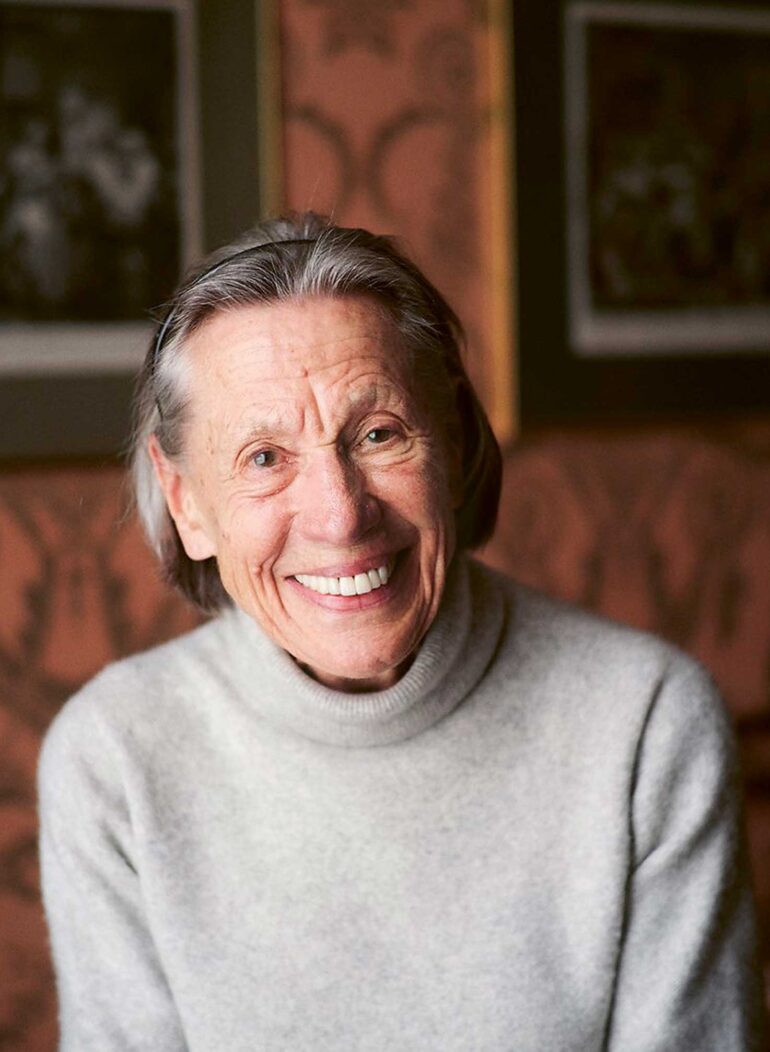

Ursula Jones, above. Lucerne Festival – Summer Festival 2019, right.
Music as a livelihood
‘I’d have loved to study archaeology,’ explains Ursula Jones. ‘But my parents were resolute in their conviction that I was to study a “proper” subject.’ Languages were the answer. After studying at the University of Geneva to be a German, Italian and French interpreter, Ursula, then 22 years old, decided to move to London for six months to learn English – and she is still there today. ‘I was lucky enough to get a simple job in the Philharmonia Orchestra’s office in London. After my six months were up, I was offered the role of Orchestra Secretary,’ she explains, adding that ‘music became my livelihood and I never returned to the University of Geneva.’ A couple of years later, she and a musician founded their own English Chamber Orchestra, and she assumed responsibility for its administration for many years. She gave this up at the age of 50 and started her long-awaited degree in archaeology at the University of London. Today, she devotes her life to encouraging and supporting young, talented musicians.
‘I devote my life to encouraging and supporting young, talented musicians’
Ursula Jones
That special moment
Manuela Stier also experienced that moment where she knew what she wanted to put her heart and soul into: ‘In 2012, I got to know a little boy called Mael, who is affected by the rare, fatal disease Niemann-Pick Type C.’ In 2014, she founded the Förderverein für Kinder mit seltenen Krankheiten (KMSK), and has been its Managing Director ever since. Back then, rare diseases were barely in the public eye, with the families affected by them being completely on their own in many respects. ‘I wanted to change that,’ she emphasises. So, she founded the charity. ‘Our aim is to offer families financial support, to bring them together and to give them much-needed time off,’ she says. Just seven years later, they have achieved a great deal and a ‘digital KMSK information platform’ for affected parents is underway. Since it was set up, this association has paid out contributions of more than 1.1 million Swiss francs to affected families, and since 2014, KMSK has been able to invite around 5,600 family members to free KMSK family events. ‘I’m proud that we can now count on a great number of good-hearted people who support us in all kinds of ways,’ states Manuela Stier.
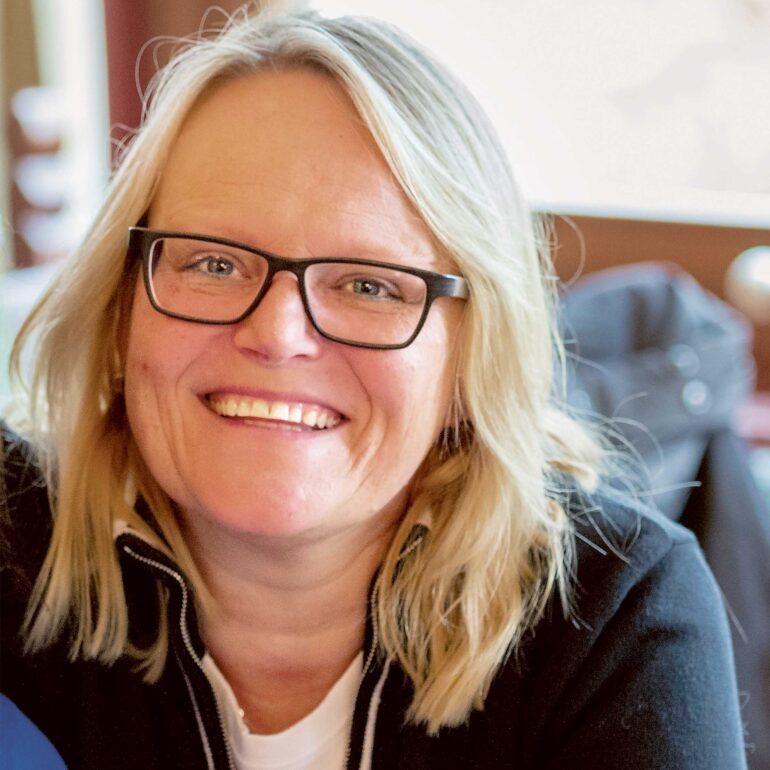
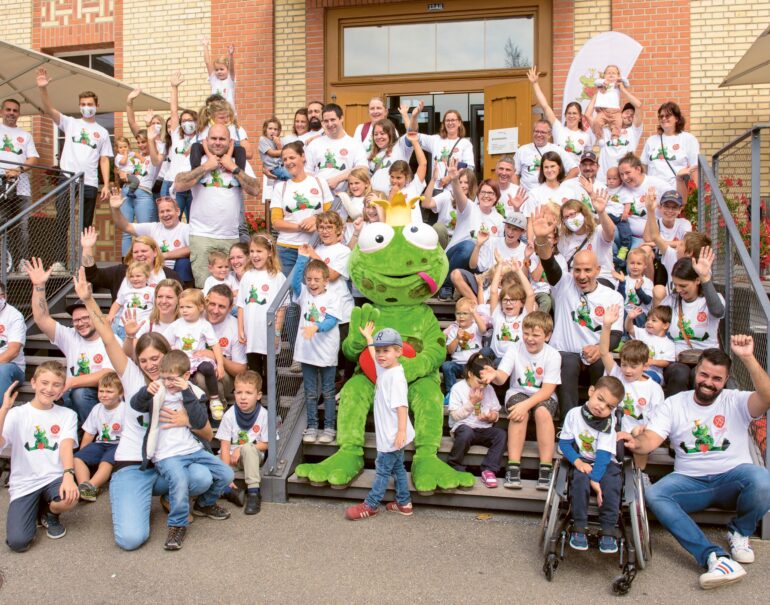
Children at an adventure day held by the Förderverein für Kinder mit seltenen Krankheiten (association for children with rare diseases), right. Manuela Stier, left.
‘I am proud that we can count on countless people with compassion.’
Manuela Stier
Bringing people out of the shadows
Streetwise Opera is also bolstered by considerable support, with professional tutors giving homeless people weekly singing and acting workshops in centres across England. Streetwise Opera is another project that Ursula Jones is involved in. Her involvement is fitting: music helps to alleviate suffering. The institution is committed to helping homeless people reintegrate through music and was founded by Matt Peacock, a young singer, 20 years ago. Today, it puts on critically acclaimed opera productions and creative activities in art venues and homeless centres. ‘Participating in the programme boosts people’s well-being and social integration, helping them to develop the skills and self-confidence they need to finally step out of homelessness,’ emphasises Ursula Jones. Its impact is impressive: in a recent survey, 92 per cent of participants stated that their mental health and sense of belonging had improved. The feeling of being alone can be a heavy burden, as Manuela Stier knows. ‘Many of the families practically live in the shadows. Their day-to-day life is shaped by trips to get treatment and to the doctor’s. The family bear the burden of uncertainty and constant worry for their poorly child.’ KMSK has become an important port of call, which also involves making the public aware of the issue. Communication is important and social media play a central role. Without social media, it would be hard to get in touch with families and bring them together. Today, 450 families exchange their thoughts in a closed self-help group on Facebook, where they can benefit from other people’s experiences. The charity enjoys broad-based support. ‘Lots of companies give us long-term support,’ says Manuela Stier. They help bring joy to sufferers’ lives and use long-term awareness campaigns to draw the public’s attention to sufferers’ situations.
Exploring different ways of thinking
Corina Eichenberger has seen the situation from both sides. A former member of the Aargau State Council, she is President of the Board of Trustees of the Stapferhaus in Lenzburg on the one hand, and a board member at Dreyfus Söhne & Cie AG on the other. As a board member at this private bank, Corina Eichenberger is indirectly involved with the Isaac Dreyfus-Bernheim Stiftung. Dreyfus bank founded the charity in 2013 to mark its bicentenary. With its work, the Isaac Dreyfus-Bernheim Stiftung helps make cultural projects, such as exhibitions in Kunsthalle Basel, a reality. Alongside its cultural engagement, the charity also has humanitarian and benevolent aims. As the President of the Board of Trustees of the Stapferhaus in Lenzburg, Corina Eichenberger is close to the action in terms of operations. This pairing suits her. When she was approached by the Aargau State Council, it was the contact with people that primarily tempted her and motivated her to get involved: ‘Being in contact with people who think about things in very different ways has always been important to me,’ she says. Corina Eichenberger played a role in building up and developing the charity. ‘I’m fascinated by getting to know different people and their ways of thinking, and that keeps my thinking vibrant and flexible, too.’ The Stapferhaus discusses pressing questions of the present day, aiming to use its exhibitions and the way in which projects are exhibited to spark discussions on topics that are relevant to our society and that move people. ‘I love working with the charity,’ says Corina Eichenberger, ‘particularly when I can see that it’s successful.’
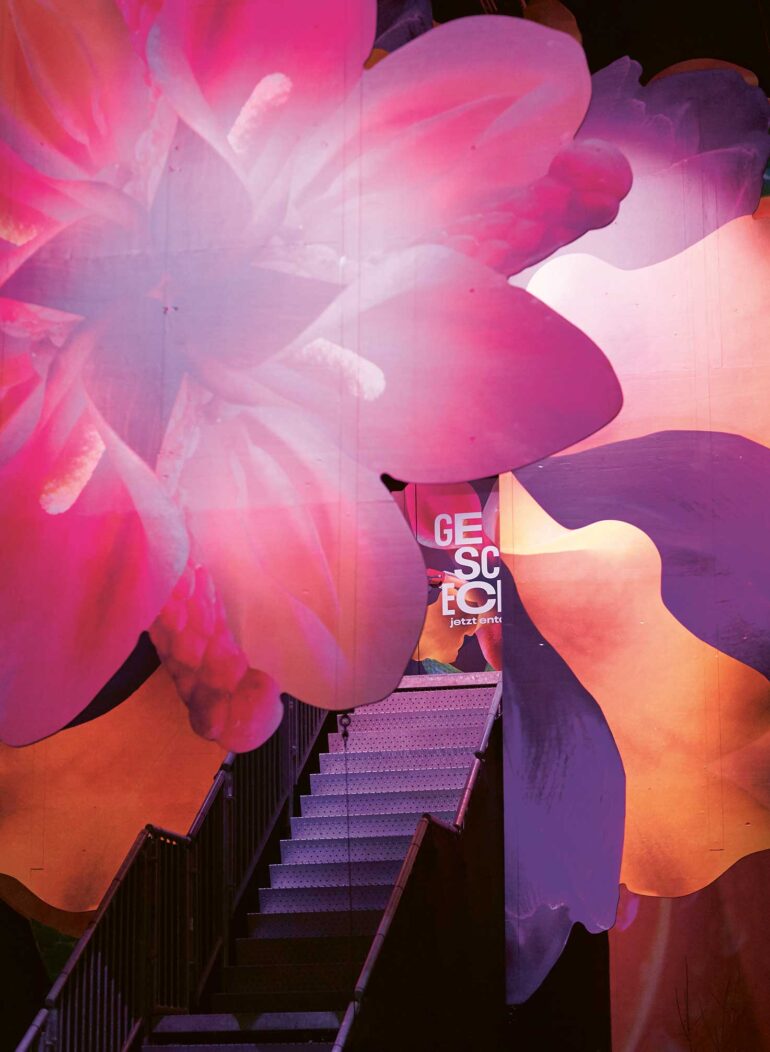
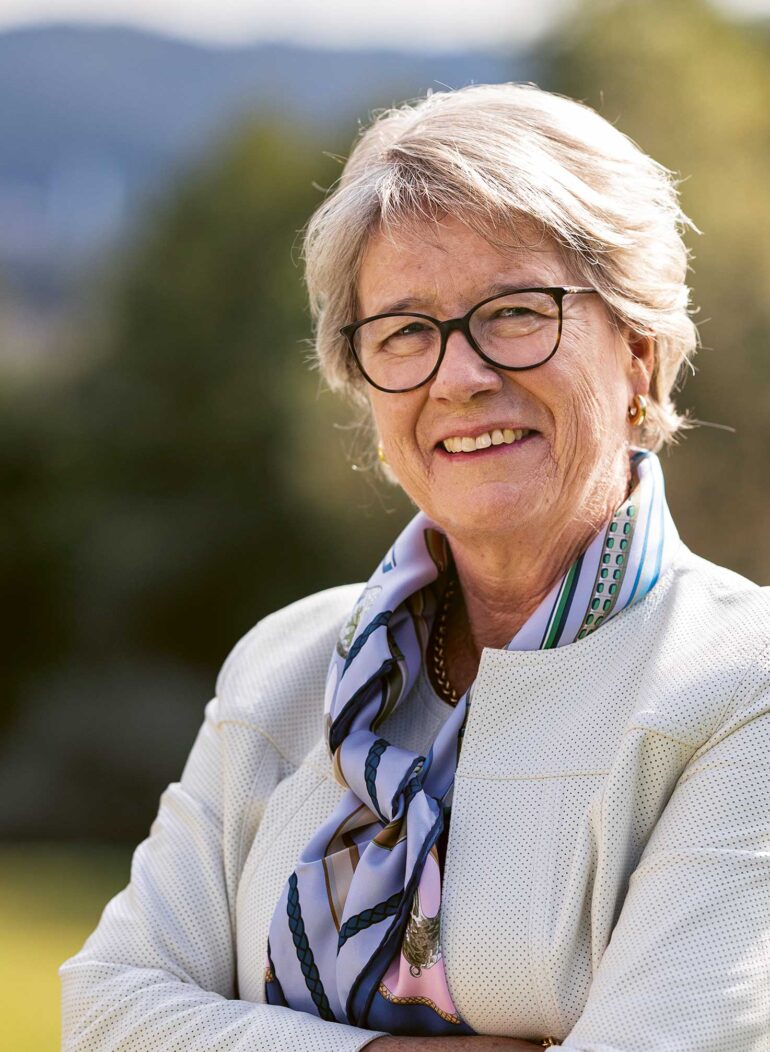
Corina Eichenberger, right. The current exhibition at Stapferhaus Lenzburg: Gender & Sex.
Award-winning
Ursula Jones’ work has also received recognition: in 2010, Queen Elizabeth II awarded her with the ‘Order of the Officer of the British Empire’. It took her by surprise, but she was delighted nonetheless. Ursula Jones now has British citizenship, but she still has her Swiss passport, and receiving an honour like this is really rather special for someone from Switzerland. Today, her main connection to Switzerland comes in the form of music. ‘Young musicians are my calling,’ she says. Every year, she takes young instrumentalists to the debut concerts at the Lucerne Festival in summer, and to the opening concert of Lucerne’s chamber music cycle in the autumn. Plus, she organises additional concerts in Ticino and the Valais, and anywhere in Switzerland where she can find opportunities for young musicians. ‘Classical music isn’t as elitist today,’ she stresses. A lot has changed: the dress code, for example, and the issue of gender is much further along in England, too. ‘I can honestly say that, in England, no distinction is made between male and female musicians. The best musician, regardless of gender, gets the job,’ says Ursula Jones.
‘I take great pleasure in my work at the foundation.’
Corine Eichenberger
Discussions desired
Corina Eichenberger knows how exposed you feel as a woman in finance. She was often the only woman on a committee, and while all-male panels do still happen from time to time, she now usually finds that there are other women there. In her eyes, there is no question that mixed-gender teams are enriching and in the interests of the matter at hand: ‘Women and men think and act differently, so it’s important to have mixed-gender teams,’ says Corina Eichenberger. ‘Women are often more direct and put decisions into practice more systematically once they’ve been made.’ Fittingly, the current exhibition at the Stapferhaus is entitled ‘Gender’. It’s a polarising topic, which pleases Corina Eichenberger. After all, it’s supposed to spark discussions. ‘It shows that we picked the right topic,’ she says. Unfortunately, the exhibition has been paused for the moment, but ideas for subsequent exhibitions are coming thick and fast. The Stapferhaus uses digital channels in an ultra-innovative way to maintain its presence and, of course, is hoping that the exhibition can reopen as soon as possible. Corina Eichenberger: ‘I hope as many people and school groups as possible can still visit the exhibition! It’s so thought-provoking: it’s really worth a visit!’

